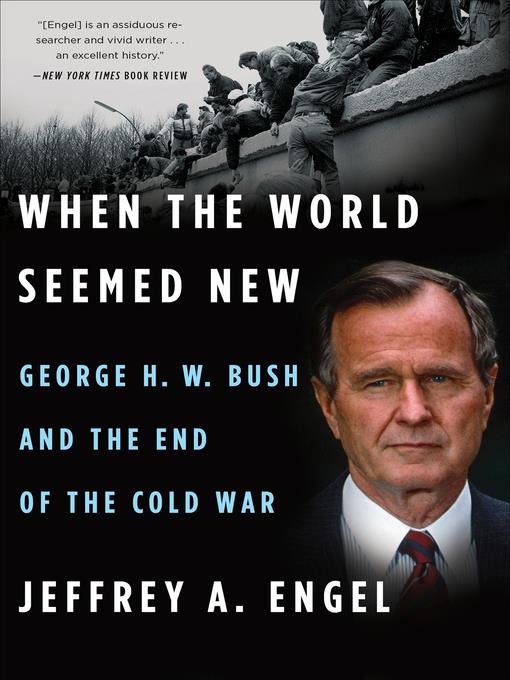
When the World Seemed New
George H.W. Bush and the End of the Cold War
کتاب های مرتبط
- اطلاعات
- نقد و بررسی
- دیدگاه کاربران
نقد و بررسی

September 15, 2017
Revisionist study of George H.W. Bush's term in the White House, which saw the collapse of the Soviet Union and the emergence of the U.S. as the world's sole superpower.According to Engel (Director, Center for Presidential History/Southern Methodist Univ.; Cold War at 30,000 Feet: The Anglo-American Fight for Aviation Supremacy, 2007, etc.), the first George Bush skillfully negotiated a course around numerous treacherous shoals. One involved Mikhail Gorbachev, whom other leaders regarded in friendlier terms than did Bush. Early in his term, Bush shook off advice from Margaret Thatcher and his predecessor, Ronald Reagan, and looked to "prepare in a serious way for a post-Gorbachev future," which in effect meant giving support to Gorbachev's competitor, Boris Yeltsin. Bush's attention to a collapsing Soviet Union at the end of the Cold War also meant careful negotiation with China, whose leadership, Engel argues, was terrified of the reforms sweeping other formerly communist regimes. The author praises Bush for his deft handling of numerous fraught situations, from the invasion of Panama to the much more extensive invasion of Kuwait. In this, however, he is not uncritical, and he notes that Bush was fortunate in facing modest resistance in the latter theater, even as he prepared for an extended conflict and significant casualties, writing in his diary, sanguinely, "sometimes in life you've got to do what you've got to do." Engel goes so far as to venture that Bush's views of Saddam Hussein "obscured his ability to tell fact from fiction when it came to the Iraqi leader." Even so, the author gives Bush credit for leaving office with a strong state and a global presence enhanced by the world's most dominant military, and he observes pointedly that the White House is not the best arena for the inexperienced; one thinks of the current president when reading Engel's caution that "the steeper the learning curve...the greater the danger." Useful reading for anyone with an interest in the first years of the post-Cold War era.
COPYRIGHT(2017) Kirkus Reviews, ALL RIGHTS RESERVED.

October 1, 2017
Throughout his career--businessman, congressman, UN ambassador, CIA director, vice president under Ronald Reagan--George H.W. Bush (b. 1924) earned a reputation for being "reliable rather than revolutionary" and loyal to a fault, says Engel (director, Ctr. for Presidential History, Southern Methodist Univ.; Into the Desert). Engel maintains that Bush's impressive resume combined with a sturdy temperament made him uniquely qualified to manage the "most internationally complex" presidency since World War II. In his single term, the world watched the fall of the Berlin Wall; the dissolution of the Soviet Union; revolutions in China, Yugoslavia, and Romania; and American forces enter Panama, Somalia, and Kuwait. The author contends that Bush's style of "Hippocratic diplomacy," or striving to do no harm, led the way toward a new world order. Though settled within Bush's administration, the broader narrative is more focused on the geopolitical maneuvering of the era. It will intrigue fans of political history who are also interested in international relations. VERDICT General readers may struggle to get through the exhaustive political play-by-play, but Engel does justice to his subject and his monumental, if underrated, feats.--Chad Comello, Morton Grove P.L., IL
Copyright 2017 Library Journal, LLC Used with permission.

























دیدگاه کاربران